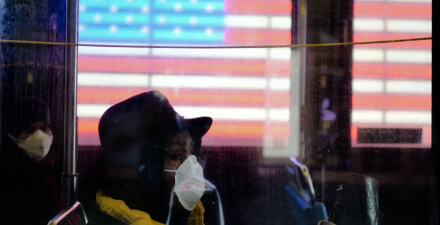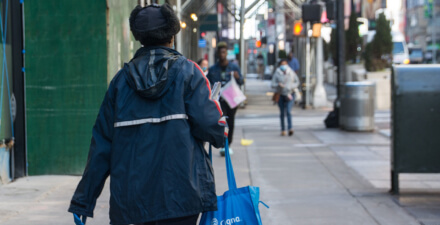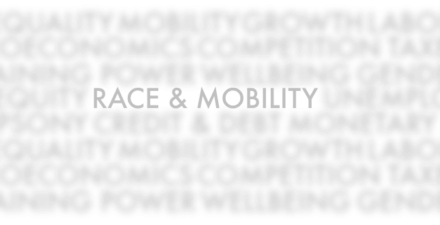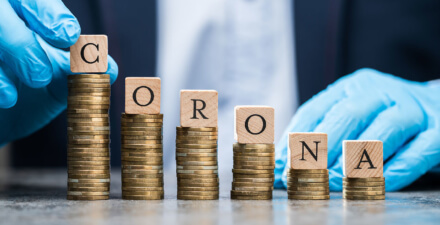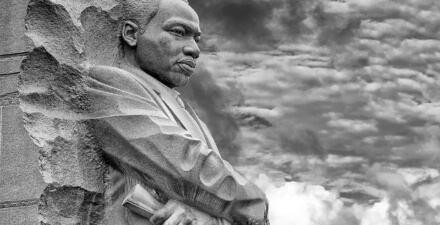Overview
“Equitable Growth in Conversation” is a recurring series where we talk with economists and other academics to help us better understand whether and how economic inequality affects economic growth and stability.
In this installment, Equitable Growth Senior Policy Advisor Liz Hipple talks with Trevon Logan, the Hazel C. Youngberg Trustees Distinguished Professor of economics at The Ohio State University and a research associate at the National Bureau of Economic Research. Logan specializes in economic history, economic demography, and applied microeconomics. He also does work that intersects with health economics, applied econometrics, applied microeconomics, and sociology. His current work investigates the intersection of intergenerational economic mobility, race, and segregation.
In an in-depth conversation about his research and its implications for public policymaking, Hipple, who leads Equitable Growth’s work on economic mobility, and Logan discuss:
- The reasons for the disparate health impacts of the coronavirus among black Americans
- The historical legacies of structural inequalities in the United States
- The economic inequalities faced by African Americans in the coronavirus recession
- Policy recommendations to deal with the immediacy of the coronavirus recession
- Policy recommendations to deal with historical structural inequalities to power a more equitable economic recovery
- The historical legacy of intergenerational mobility, race, and segregation
The historical legacies of structural inequalities in the United States
Hipple: What do you think some of the causes of those underlying reasons are? In particular, I’m interested if you can tell us a little bit about what you think it says about structural inequalities in the United States. In particular, as an economic historian, I know you look at how trends in the past continue to affect us today, so do you see a connection between historical racial inequalities and policies in the past and the fact that now, COVID-19 is so disproportionately negatively impacting African American communities?
Logan: Yes. There are certainly some long-run historical factors that play a part in this. If you think about where African Americans are living, what types of occupations they are disproportionately employed in, and their living standards, in terms of factors that would relate to the severity of a COVID-19 infection, all of these are actually long-run processes. So, why African Americans are disproportionately represented in these essential and low-paying occupations that are exposing them to the coronavirus is a long-term outcome of racial discrimination and lack of wealth in the African American community.
Then, you factor on top of that, why is it that African Americans have such a high death rate? It is because many of the underlying conditions that make one more susceptible to the disease and the severity of the disease should they become infected are related to factors such as environmental racism, housing segregation, and substandard housing, which, once again, are all long-term historical factors. Then, if you take in the incarcerated population, you have a long-term historical factor of mass incarceration of African Americans and in particular, African American men.
All of these dimensions that are leading to this racial disproportionality in infections and deaths today are simply highlighting historical, long-run processes that are structural in terms of disadvantaging the African American community.
Policy recommendations to deal with historical structural inequalities to power a more equitable economic recovery
Hipple: Are there bigger picture, more systemic policies that you would want policymakers to consider beyond just the immediate moment to set the economy up for better, more successful, and hopefully more equitable performance in the future? And I’d also like to return to the point you made at the beginning of our conversation about how one population that we’re really seeing being impacted by coronavirus is the incarcerated population. What does that tell us about policy reforms we might need to consider in our incarceration policy?
Logan: Yes, I think that there are a number of different policies that we have to think about in terms of the health effects of having all of these prisoners in these overcrowded facilities. We need to acknowledge this is bad for us. We have to do something with criminal justice reform.
The second set of policy recommendations for long-term impact is intensive investment in job training and job retooling, alongside carefully monitoring the economy for monopsony power, which is having disturbing effects on the labor market. We have to have a more aggressive government response to the consolidation that is occurring in the corporate sector. Another factor here is corporate regulation more generally, in terms of stock buybacks and other sorts of regulation, particularly for these businesses that have taken government support over the past several weeks. We need to have some stipulations on that government support.
We see, for example, Congress enacting some teeth on stock buybacks and other sorts of things, but as these companies come to the public for support, we need to make sure that they are keeping employees on their payrolls and fulfilling their promises until those debts are paid off. We have to have active monitoring of the fiscal support that we have provided and the revenue support that we have provided to these private businesses. Those things have to be continually monitored well after the immediate crisis has passed.
The historical legacy of intergenerational mobility, race, and segregation
Hipple: Shifting gears now, away from the coronavirus to some of the other research that you’ve done. I want to take the opportunity to ask you more about the work you’ve done related to your grant from Equitable Growth on intergenerational mobility, race, and segregation. Could you tell readers a little bit about that research? And what are some of the key findings you’ve come across in it? And do those finding tell us anything about the role of policy in shaping people’s economic outcomes?
Logan: What we found in our work on intergenerational mobility and segregation, or lack of access to opportunities, is that the relationship with intergenerational inequality is itself a function of some long-term consequences and some long-term historical processes relating to segregation and relating to public investment in education, both of which have impacts for intergenerational mobility.
When we think about this process more generally, and to tie it back into, say, COVID-19 as the economy begins to recover, what we’re going to find is that places that have continual hot spots and that continue to be problems will likely be places that have structural issues that are related to intergenerational mobility, the segregation of opportunity, and lower investment in public goods.
All of these factors that lead these places to be unequal are also places that are hot spots for COVID-19 infection, so that when the next pandemic comes, when the next economic bit of turbulence hits the economy, these places will be negatively impacted again. And it is these places that have structural, long-term issues with race and with opportunity and with investment in public infrastructure and in human capital formation.
Hipple: Why is there this lack of investment in human capital in some places and what are the consequences for that over the long term? As you said, we’ll see in the future there’s going to be this overlap between pandemic hot spots and places with these structural inequalities. Can you say a little bit more about why you expect to see that overlap and what are those factors driving that really?
Logan: I think some of the factors will be racial animus. There’s some very interesting work that looks at the lack of investment in public goods in more heterogeneous places. We see lower investment in public goods when there are more different types of people to share in those public goods. We also see an increase in policing in places that received more African American migrants in the Great Migration.
These are examples of active policy responses that resulted in lower investment in what I call pro-social public goods, such as education, and then in higher levels of investment in what I call anti-social public goods, such as policing. So, these are both long-term factors that lead to many of the things, such as mass incarceration and environmental racism, which actually are exacerbated by COVID-19.
Hipple: That makes a lot of sense and is a depressing reminder of how all of these things are connected and how policy decisions in the past continue to have long-term consequences today. Thank you so much again for taking the time to have this conversation with me. I really appreciate it.
Logan: Thank you.
Related
Explore the Equitable Growth network of experts around the country and get answers to today's most pressing questions!

